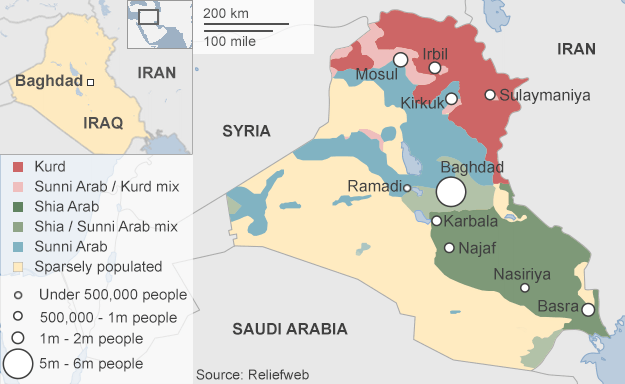 By:Mshari Al-Zaydi
By:Mshari Al-Zaydi
The loss of Iraqi Prime Minister Nuri Al-Maliki’s authority over large swaths of Iraq is due to several reasons.
First, there is the ideological blindness, personal greed and sectarian sentiments that took hold of the leader of the Islamic Da’wa Party and the head of the Iraqi government, Nuri Al-Maliki. Second, there is the absence of a political consensus and the lack of mutual trust between Iraq’s Shi’ite, Sunni, and Kurdish communities—this is not to mention the spirit of rivalry and monopolization of power that has taken hold of Maliki and, before him, the former Iraqi Prime Minister Ibrahim Al-Jaafari. Third, the weakness of US policy on Iraq. Following the invasion of Iraq and the toppling of Saddam Hussein in 2003, the head of the Coalition Provisional Authority of Iraq, Paul Bremer, oversaw the country’s transition in a superficial and foolish manner, handing the country to Iran and its followers. He also disbanded Iraq’s well-trained army, a step which transformed the ranks of its sacked officers into a breeding ground for animosity, one ready to explode at any moment.
This, as well as many other issues, created a political stalemate and made Iraq’s Sunnis believe it was impossible to achieve any kind of political breakthrough. Maliki’s government acted as a sectarian regime, with Sunnis expected to submit and obey orders. Even when Sunnis showed a profound sense of patriotism and fought Al-Qaeda and Takfirist movements—as was the case with the “Awakening” councils—Maliki did not alter his oppressive and deceitful approach.
The growing sense of outrage among Iraq’s Sunnis was also driven by the situation in Syria, where President Bashar Al-Assad, backed by Iran’s Islamic Revolutionary Guard Corps, the Iraqi faction of the Al-Abbas Brigades, and the Lebanese Hezbollah, is—to put it bluntly—killing Sunnis. Only a few days ago, Hezbollah announced the death of six of its fighters who were killed within 24 hours in Syria, and described them as “martyrs to the sacred duty of jihad.”
The Islamic State of Iraq and Syria (ISIS) is a Takfirist militia that is even more radical than Al-Qaeda. It has become the embodiment of the frustration and outrage felt by Sunni fundamentalists and, only temporarily, Iraqi Sunnis in general. ISIS is trying to ride the wave of Sunni anger against Maliki. The Sunni support for ISIS is not well-entrenched, however. In fact, their anger has blinded them from seeing the consequences that may ensue.
The picture is now all too clear: tensions between Sunnis and Shi’ites have flared into a full-scale war. This is evidenced by a fatwa issued by Grand Ayatollah Ali Al-Sistani, Iraq’s top Shi’ite cleric, calling on his followers to join the fight against ISIS. Against this, we had the Iraqi Sunni Grand Mufti Sheikh Rafi Al-Rifa’i issuing a statement last week hailing the “mujahideen” in Anbar and Mosul. If this tit-for-tat scenario continues, it will send Iraq spiraling back to the old days of the battles of Karbala, Siffin, and the massacres perpetuated by past dictators such as Al-Hajjaj Ibn Yusuf.
We also have Barack Obama: he says he is upset by the sectarian conflict in Iraq (well, so are we.) But what about offering a solution? Obama said that all possibilities were “still on the table” but he will not send any forces or war jets. What, then, is left? We also have the Arab League (remember them?) saying promising they will hold an emergency meeting on Iraq.
Clearly, the time of Iran’s sole hegemony over Iraq is drawing to a close. But unless it is rebuilt by its people on a non-sectarian basis, Iraq will splinter into three states: Shi’ite, Sunni and Kurdish. Another possible scenario is that Iraq will become another Somalia.
Maliki had a great opportunity to eschew partisan and sectarian concerns in favor of more patriotic ones—but he failed, and thereby lost Iraq.
Mshari Al-Zaydi is a Saudi journalist and expert on Islamic movements and Islamic fundamentalism, as well as on Saudi affairs. He is Asharq Al-Awsat’s opinion page editor. Mr. Zaydi has worked for the local Saudi press, and has been a guest on numerous news and current affairs programs as an expert on Islamic extremism.
Al Sharq al Awsat

Leave a Reply
You must be logged in to post a comment.